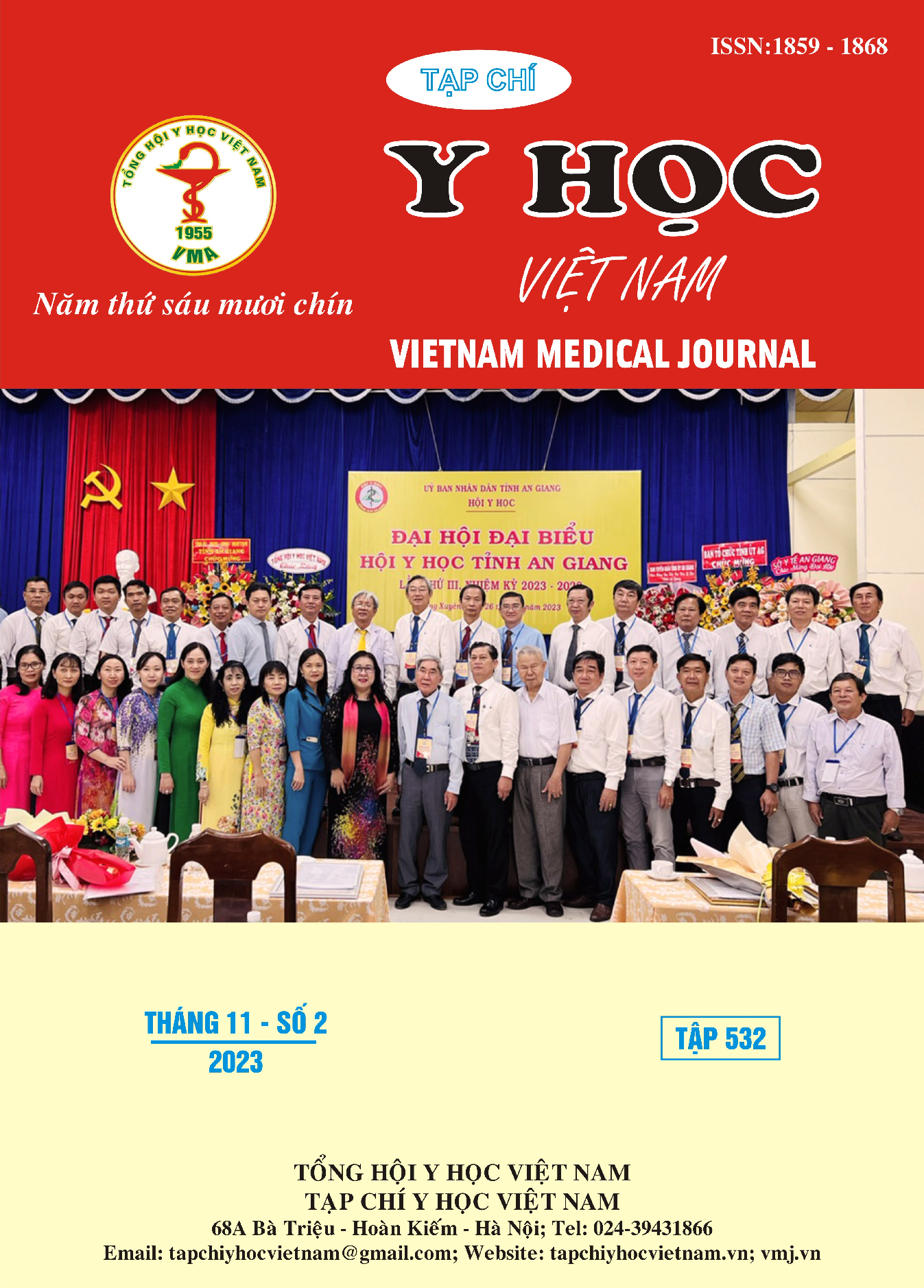STUDYING ON CLINICAL AND PARACLINICAL CHARACTERISTICS OF CASTRATION- RESISTANT PROSTATE CANCER PATIENTS IN VIETNAM NATIONAL CANCER HOSPITAL
Main Article Content
Abstract
Prostate cancer achieves an initial response rate of up to 80%, but eventually almost all patients progress to the castration-resistant stage (testosterol
<50 ng/dl). Purpose: To Describe some clinical and paraclinical characteristics of patients with castration- resistant prostate cancer treated in Vietnam National Cancer Hospital. Methods: Record the clinical and laboratory characteristics of prostate cancer patients diagnosed resistant to orchiectomy. Results: The
mean age of the patients at the CRPC diagnosis was
66.4 ± 8.7, with the most common clinical symptom being bone pain (64.5%). Bone, pelvis and vertebral column, was the most common site of metastasis at the CRPC diagnosis (77.4%). The Gleason score of the patients participating in the study was mainly 9-10 scores. Conclusion: Bone metastasis is the most common of patients with the CRPC diagnosis.
Article Details
Keywords
Castration-resistant, Prostate cancer
References
2. Bùi Văn Kiệt, Trần Minh Anh Thư, Nguyễn Mạnh Tiến và CS., Đánh giá hiệu quả phác đồ
Docetaxel + Prednisolon trong điều trị ung thư tuyến tiền liệt kháng cắt tinh hoàn tại bệnh viện Bình Dân. Tạp chí Y Học TP. Hồ Chí Minh, 2014. 18.
3. I. F. Tannock, et al., Docetaxel plus prednisone or mitoxantrone plus prednisone for advanced prostate cancer. N Engl J Med, 2004. 351(15): p. 1502-12.
4. G. Song, et al., Prostate-specific antigen response rate of sequential chemotherapy in castration-resistant prostate cancer: the results of real life practice. Prostate Int, 2013. 1(3): p. 125-32
5. D. P. Petrylak, et al., Docetaxel and estramustine compared with mitoxantrone and prednisone for advanced refractory prostate cancer. N Engl J Med, 2004. 351(15): p. 1513-20.
6. M. Shiota, et al., The oncological outcomes and risk stratification in docetaxel chemotherapy for
castration-resistant prostate cancer. Jpn J Clin Oncol, 2014. 44(9): p. 860-7.
7. S. Oudard, et al., Cabazitaxel Versus Docetaxel As First-Line Therapy for Patients With Metastatic Castration-Resistant Prostate Cancer: A Randomized Phase III Trial-FIRSTANA. J Clin Oncol, 2017. 35(28): p. 3189-3197.
8. F. Fukuta, et al., Efficacy and safety of docetaxel and prednisolone for castration-resistant prostate cancer: a multi-institutional retrospective study in Japan. Jpn J Clin Oncol, 2015. 45(7): p. 682-7.
9. I. C. Cho, et al., Treatment outcome of docetaxel plus prednisolone for metastatic castration-resistant prostate cancer in Korea. J Cancer Res Ther, 2014. 10(2): p. 251-7.


